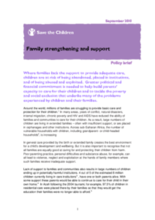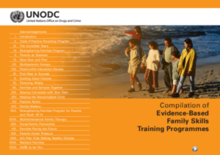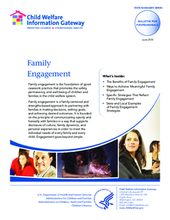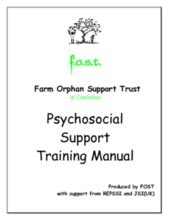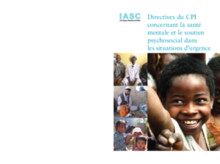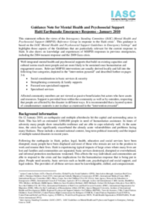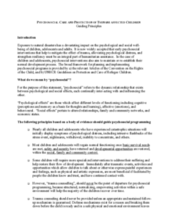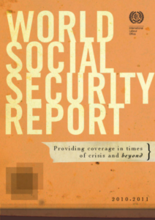Displaying 431 - 440 of 507
Call for greater political and financial commitment to help build parents’ capacity to care for their children and to tackle the poverty and social exclusion that underlie many of the problems experienced by children and their families.
This compilation provides policymakers, programme managers, non-governmental organizations and others interested in implementing family skills training programmes with a review of existing evidence-based family skills training programmes. Its purpose is to provide details of the content of such programmes, the groups targeted, the materials used and the training implemented, in order to assist users in selecting the programme best suited to their needs and to offer guidance as to the kind of programmes available.
The findings of the study underscore the impact of life on the streets on children’s overall subjective wellbeing and the importance of providing life necessities and psychological counseling to these children.
Family engagement is the foundation of good casework practice that promotes the safety, permanency, and well-being of children and families in the US child welfare system. This brief offers information to help State child welfare managers improve family engagement across program areas.
A training manual on supporting children and young people who have been orphaned or affected by HIV and AIDS. It provides exercises for caregivers and other adults on understanding how children experience loss and grief and on the types of social and psychological supports such children will need.
Guidelines for a multi-sectoral response to the most urgent mental health and psychosocial issues in emergency situations.
Provides guidance to organisations working in Haiti about how they can most appropriately communicate with communities, their own personnel and the media. The Guidance Note focuses mainly on the acute phase of the response (including early recovery) and provides basic guidance for action.
Guidance on use of early psychosocial interventions in humanitarian responses to help to mitigate the effect of trauma, alleviating psychological distress, and strengthen resiliency.
This report from the International Labor Organization is the first in a series of the World Social Security Reports whose chief aim is to present the results of regular statistical monitoring of the state and developments of social security in the world. It presents the knowledge available on coverage by social security in different parts of the world and identifies existing coverage gaps. It also examines the scale of countries’ investments in social security, measured by the size and structure of social security expenditure and the sources of its financing.
This quasi-experimental study tested a model of adult mentorship and support to improve psychosocial outcomes among youth-headed households in a rural area of Rwanda.

